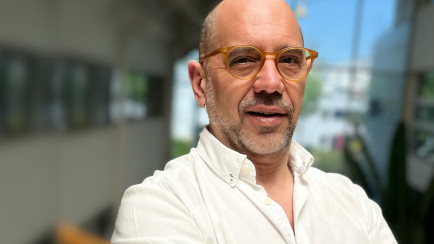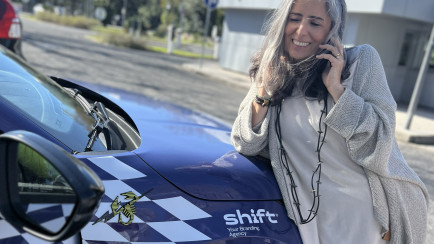
At 25 years of existence, the branding agency Shift has been following the evolution of brands. Miguel Reis, creative director, explains to Imagens de Marca what transformations and trends we will see in the areas of design and branding in 2024.
"2024 is going to be a big challenge. The emergence of Artificial Intelligence last year turns out to be a test of fire for everything related to brands and visual identity. AI brings us a plethora of tools that can be explored to exhaustion and are powerful accelerators of our method of work in various areas of branding construction, from research to finding the perfect test, from prototyping to experimentation, everything is possible," Miguel Reis explains to IM.
Technology is advancing at a dizzying pace and the biggest challenge for brands is to keep up with the rapid global transformation where everything is possible, practically in real time.
"I think there is still some hesitation on the part of clients to use this technology. Of course, we already use AI in the projects we have, but, for example, not long ago a client asked us for a project in which he wanted an idea similar to brand A or B. And I mentioned that what the client wanted was something that was not real, it was being done by AI, it was not tangible, nor possible. That was done exclusively for social media, obviously, to amplify the notoriety of that brand. My client said: no, I don't want that," reveals the creative director of Shift.
Dealing with the expectations of clients and consumers seems to be a challenge these days, and one that will intensify throughout the year. But for Miguel Reis, it is important that the authenticity and, above all, the purpose of each brand is not lost.
"The emergence of AI also creates here an almost opposite concern in brands wanting to show themselves to be more authentic, to be closer to people, closer to their communities. Bringing some realism to people is fundamental. For example, consumers like it when real people appear in advertisements, true stories that bring authenticity to the communication," says the head of Shift.
Values such as sustainability, diversity, and inclusion will continue to be valued, both by consumers and by brands, and there are already several examples in our market.
"Zara Home, for example, recently opened a store where it hired people with disabilities, which shows that the brand is for everyone and belongs to everyone. We also have Café Joyeux, which has the same purpose. There are fewer filters in the way brands relate to different types of communities. The more diverse the people, the more inclusive and universal the brand becomes," adds Miguel Reis.
In terms of closeness, the head of Shift mentions that this will be a year of creating good memories between brands and consumers. As for the future of the agency, Miguel Reis believes in a bright future. "The future of branding and design is increasingly seen as a genuine and authentic expression of the values of brands. It is crucial to reinforce the capacity to integrate new and innovative technologies while maintaining consistency, relevance, emotion, and purpose in the discourse of brands. This authenticity should not be seen just as a trend, but rather as an imperative that drives brands to establish lasting relationships with an increasingly demanding public," concludes the professional.
This article was published in Imagens de Marca.

In the latest edition of Meios & Publicidade, Ricardo Pinto Correia, Head Designer at Shift, shares an article that challenges the way we think about branding in...

Dubai Chocolate, the global phenomenon of the moment, quickly conquered the world and all it took was a post on TikTok showing an influencer's experience with the produc...

Shift is the branding agency that doesn’t leave your brand in someone else’s hands. Now that a new edition of the Eco Rally is kicking off, its partnership with World Shopper...